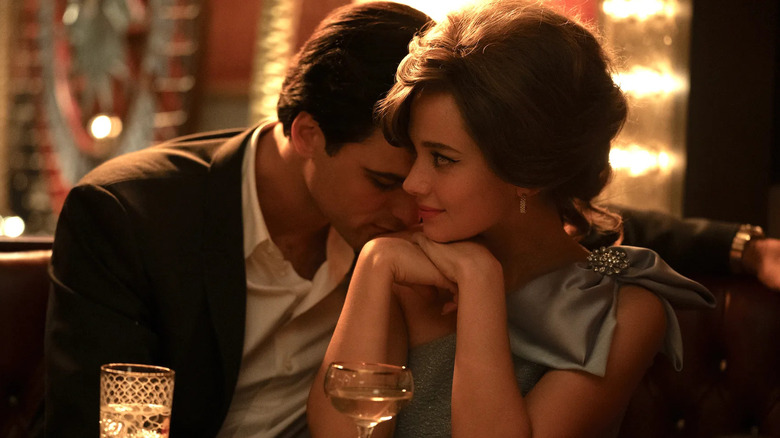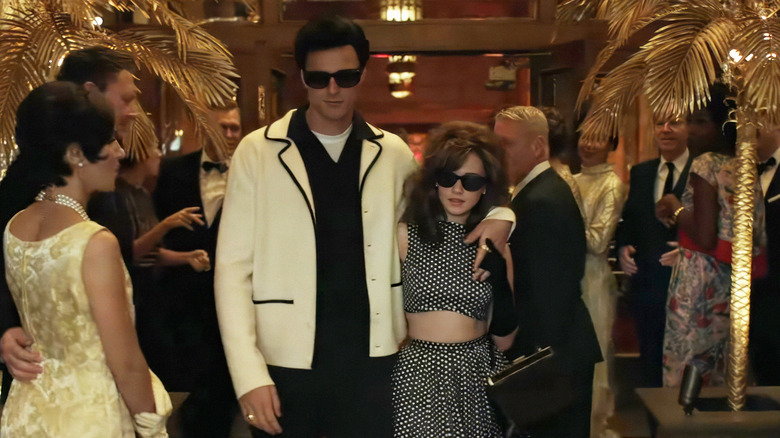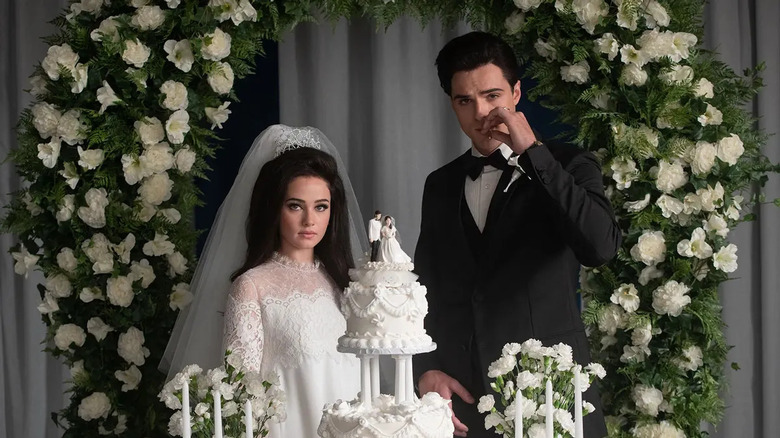Priscilla Review: A Devastating Depiction Of An Infamously Toxic Relationship
- Sofia Coppola's richest, darkest examination of the hell of celebrity to date
- Cailee Spaeny and Jacob Elordi are terrific in the lead roles
- A harrowing account of a toxic relationship, but with a dry, deadpan humor that makes it hard to look away
- Whenever it shows Elvis in action, it pales in comparison to Baz Luhrmann's 2022 biopic
When discussing the work of a problematic figure, you'll often hear the common refrain from their fans that we should "separate the art from the artist" and not let their public image tarnish our perception of their creations. With her excellent new film "Priscilla," writer-director Sofia Coppola has done just that, but in the opposite direction. Rather than celebrate the King of Rock 'n' Roll, she's stripped Elvis Presley of his back catalog, making it impossible for any right-minded viewer to overlook his manipulative tendencies and how they dominated his closest relationship.
Coppola's film isn't one directly centered on Elvis, of course, but he proves such a force of nature even during his prolonged absences that it very quickly reveals itself to be about the collateral damage caused by a man who has bought into the cult of personality built around him, to the detriment of his own marriage. Even in the scenes he's not in, he's the topic of every conversation. I wouldn't be surprised to see the movie get criticized on social media for not passing the Bechdel Test, even if conveying the omnipresence of this man's celebrity status, and how it has damaged his closest relationships, is what Coppola is clearly intending to illustrate.
A poisonous study of celebrity
Priscilla Beaulieu (played here by the excellent Cailee Spaeny) was infamously just a teenager, fresh out of ninth grade, when she first met Elvis (Jacob Elordi) at a U.S. army base in Germany. As an impressionable young girl, she's coaxed to a party at his place by a local who promises her she'll meet one of her idols — the promise of meeting the King so alluring, it doesn't immediately register to anybody in her orbit as being adjacent to grooming. She is still in high school, as she soon tells Elvis, but he becomes smitten regardless. Although, Sofia Coppola's depiction of this suggests he's largely falling in love with the idea of someone who already idolizes him — he immediately asks her if the other kids at her school are still listening to his music. It's a hilariously pathetic moment, one of many that finds a dark, deadpan humor in an otherwise harrowing story about a power-imbalanced relationship — even if every laugh just accelerates the discomfort further.
If Baz Luhrmann's typically extravagant biopic from last year was about this larger-than-life talent, Coppola's film is the necessary addendum that fills in the blanks of his life away from his career highs. It becomes difficult to discuss a film in which his younger partner is centered, the drama viewed entirely through her eyes, without focusing entirely on him; he unwittingly strips Priscilla of her agency by making her pine for his return during the extended periods he spends away from Graceland, her personality defined by proximity to him in the public eye. The subjects of Coppola's films have long been women in the cultural spotlight, or those merely enraptured by the idea of celebrity, but I don't think any of her efforts to date have communicated the poisonous nature of fame to the extent that "Priscilla" manages. It's part of the reason why, I suspect, many critics have labeled this one of her coldest works to date — a surprise to me, as I found this to be one of her more accessible efforts, light on its feet without ever letting you forget just how disturbing every detail in this story is.
As the movie progresses, the director very consciously parallels her past work. Instructed not to leave the grounds of Graceland unaccompanied, it becomes a prison in the same way that the Palace of Versailles did for Marie Antoinette, a comparison Coppola draws out to the very end when she even echoes the final shot of her 2006 revisionist epic. Although successful on its own terms as a character study, thanks in no small part to the exemplary performances of Spaeny and Elordi, "Priscilla" is even better when viewed as a culmination of the themes the director has spent her entire career refining, never finding a better avatar to explore the dehumanizing nature of celebrity through than Priscilla.
Subverting biopic tropes
At certain points, it feels like the filmmaker is consciously using her story to subvert the most hagiographic moments in any biopic. Instead of sex, drugs, and rock 'n' roll, we're stuck at home with a girl fully aware she's being cheated on by a man whose conscience won't let him sleep with anyone underage (but he'll happily date them), with Elvis' celebrity status reduced to mere iconography due to a lack of his music on the soundtrack. As for the drugs, the casualness with which Priscilla is introduced to sleeping pills is alarmingly depicted, as is the moment she's awoken after falling asleep for two whole days because of them. Sofia Coppola's film is powerful because it doesn't need to editorialize or sensationalize beyond what's in the pages of Priscilla Presley's memoir, "Elvis and Me." The events documented there prove equally shocking here because of the straightforward, unassuming way they're staged, resisting every overly dramatized cliche and becoming even more harrowing because of it.
Cailee Spaeny has the unenviable task of depicting a decade in the life of a young woman who lacked agency due to living with a manipulative partner and his older peers, eternally alienated from girls her own age whom she was warned not to befriend. It's a challenge to ground such a role without personifying her as solely a victim, especially considering her existence is overshadowed by that of Elvis — hell, one early sequence even recalls an infamous scene from "Twilight: New Moon" as a montage of yearning spanning years unfolds entirely from the bedroom in her family home. It isn't until long after viewing that the difficulties of this role become more apparent, the actress proving adept at conveying a girl whose richer character is buried beneath the surface, only glimpsed later when she starts to find small ways to manipulate her partner's behavior for her own benefit.
Jacob Elordi, by comparison, has a much easier role, only a challenge due to the context it's being released to, arriving just a year after Austin Butler was Oscar-nominated for his own take on the King. He's every bit as good as Butler was, embodying an icon without ever playing too much into his stereotypical mannerisms; it only falls apart in an early scene where he's miming at the piano, or in later Vegas performance scenes where it becomes too ridiculous to function. The film is best when stripping him out of that world, and when his sheer detachment from reality makes him idiotic at best and deeply sinister at worst.
"Priscilla" is one of Coppola's richest works to date and one of the best recent movies examining the darker side of fame — all while keeping its action almost entirely restricted behind closed doors.
"Priscilla" arrives in theaters November 3.


